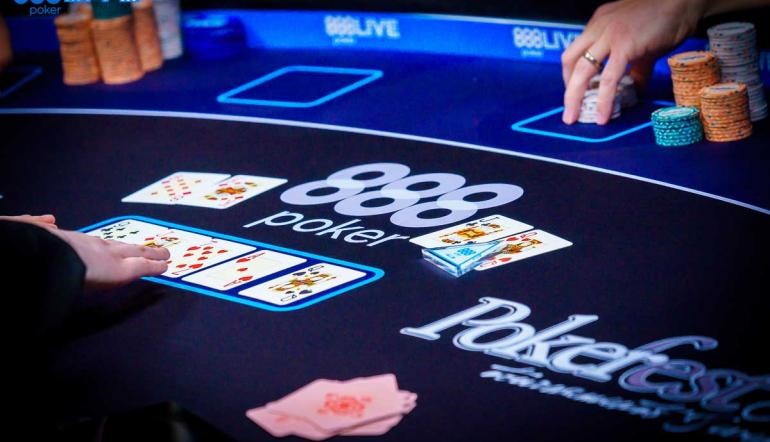The use of video games, particularly online gaming, has been on the rise in recent years. Online gaming has become an increasingly popular form of entertainment and a way for people to connect with others in a virtual environment. However, online gaming is not only a source of fun and entertainment; it has also been shown to have several positive effects on mental health.
This topic is significant because mental health is a critical aspect of overall well-being. According to the Canadian Mental Health Association, 1 in 5 Canadians will experience a mental health problem or illness in any given year. In addition, the COVID-19 pandemic has had a significant impact on mental health, with increased rates of stress, anxiety, and depression.
Online gaming refers to any video game that is played over the internet with other players or alone. Online gaming has become increasingly accessible and is now available on a variety of platforms, including personal computers, mobile devices, and gaming consoles. Online games vary in complexity and genre, from simple puzzle games to immersive role-playing games.
In the following sections, we will explore the positive effects of online gaming on mental health, specific examples of online games that benefit mental health, and the potential drawbacks of online gaming. We will also discuss how online gaming has become a coping mechanism for individuals during the COVID-19 pandemic and its potential as a therapeutic tool. Finally, we will provide suggestions for responsible use of online gaming.
Positive effects of online gaming on mental health
Reduced stress and anxiety: Online gaming has been shown to reduce stress and anxiety levels. Research has found that playing video games can decrease cortisol levels, which is the hormone associated with stress. Furthermore, online gaming can provide a temporary escape from real-world problems, allowing individuals to relax and unwind.
Enhanced cognitive function and memory: Online gaming has also been found to enhance cognitive function and memory. Studies have shown that playing video games can improve reaction time, spatial awareness, and decision-making skills. Additionally, certain types of games, such as puzzle games, have been found to increase brain activity and improve memory retention.
Boosted mood and self-esteem: Online gaming has the potential to boost mood and self-esteem. Engaging in online games can provide a sense of accomplishment and achievement, which can lead to a boost in mood and self-confidence. Additionally, playing online games with others can lead to social connections and a sense of belonging.
Improved socialization and communication skills: Online gaming can also improve socialization and communication skills. Playing games with others requires communication and teamwork, which can lead to improved social skills. Furthermore, online gaming provides a safe and low-pressure environment for individuals to practice social skills and interact with others.
Overall, online gaming has several positive effects on mental health, including reduced stress and anxiety, enhanced cognitive function and memory, boosted mood and self-esteem, and improved socialization and communication skills. By providing a temporary escape from real-world problems and offering opportunities for social connections and personal growth, online gaming can be a valuable tool for improving mental health.
Examples of online games that benefit mental health
Puzzle and strategy games: Puzzle and strategy games, such as Tetris and Chess, can benefit mental health by improving cognitive function and memory. These types of games require the player to think critically and solve problems, which can enhance cognitive abilities such as spatial awareness, decision-making skills, and problem-solving skills. Playing these games can also help to reduce stress and anxiety levels by providing a mental break from real-world problems.
Role-playing and simulation games: Role-playing and simulation games, such as The Sims and Animal Crossing, can benefit mental health by providing a sense of control and accomplishment. These types of games allow the player to create and control a virtual world, which can lead to a sense of achievement and mastery. Additionally, these games can provide a temporary escape from real-world problems and offer opportunities for social connections and personal growth.
Educational and learning games: Educational and learning games, such as Math Blaster and Duolingo, can benefit mental health by providing opportunities for learning and personal growth. These types of games can improve cognitive function and memory by challenging the player to learn and retain new information. Additionally, learning games can provide a sense of accomplishment and self-confidence, which can lead to improved mood and self-esteem.
Overall, there are several types of online games that can benefit mental health. Puzzle and strategy games can improve cognitive function and reduce stress, while role-playing and simulation games can provide a sense of accomplishment and personal growth. Educational and learning games can enhance cognitive abilities and provide opportunities for learning and self-improvement. By choosing the right type of game and playing in moderation, individuals can use online gaming as a tool for improving mental health.
Online gaming as a coping mechanism during COVID-19
The COVID-19 pandemic has had a significant impact on mental health, with increased rates of stress, anxiety, and depression. As a result, many individuals have turned to online gaming as a coping mechanism.
Increased use of online gaming during the pandemic: There has been a significant increase in the use of online gaming during the pandemic. With many individuals unable to engage in traditional forms of socializing and entertainment, online gaming has provided a safe and accessible alternative. According to a survey conducted by the Entertainment Software Association of Canada, 58% of Canadian adults reported playing video games during the pandemic, with 35% playing more than usual.
Role of online gaming in reducing social isolation and loneliness: Online gaming has played a significant role in reducing social isolation and loneliness during the pandemic. Playing online games with others provides a sense of connection and belonging, which can be particularly important for individuals who are socially isolated. Additionally, online gaming provides a safe and low-pressure environment for individuals to practice social skills and interact with others.
Case studies of individuals using online gaming as a coping strategy: There are numerous case studies of individuals using online gaming as a coping strategy during the pandemic. For example, a recent article in the Toronto Star highlighted the story of a young woman who turned to online gaming as a way to cope with anxiety and stress during the pandemic. The woman stated that playing online games with others provided a sense of connection and community that she was missing in her daily life.
It is important to note that online gaming should be used responsibly and in moderation. While it can be a valuable tool for improving mental health and reducing social isolation, excessive use can lead to addiction and negative consequences. Regarding Canadian casino options, it is important to choose safe and reputable websites when engaging in online gaming. This can be done by reading reviews and recommendations from other players, checking for licenses and certifications, and ensuring that the website uses secure payment methods. It is also important to set limits on the amount of time and money spent on online gaming, as well as to take breaks and engage in other activities to maintain a healthy balance.
Some popular platforms include PlayOLG, Casino Niagara, and Casino de Montréal. These websites offer a variety of online games, including slots, poker, and blackjack. They also offer resources and tools for responsible gaming, such as setting time and money limits, self-exclusion options, and access to support services for individuals who may be struggling with addiction or other mental health issues.
Overall, online gaming can be a valuable coping mechanism during difficult times such as the COVID-19 pandemic. By choosing safe and reputable sites and using online gaming in moderation, individuals can benefit from the positive effects on mental health while avoiding potential negative consequences.
Potential drawbacks of online gaming
While online gaming can have many positive effects on mental health, it is important to be aware of potential drawbacks and negative consequences. Some potential drawbacks of online gaming include:
Addiction and excessive use: One of the biggest potential drawbacks of online gaming is the risk of addiction and excessive use. Some individuals may find it difficult to limit their time and money spent on online gaming, which can lead to negative consequences such as neglecting other responsibilities and relationships, financial problems, and mental health issues such as anxiety and depression.
Negative effects on sleep patterns: Online gaming can also have negative effects on sleep patterns, particularly if individuals are playing late into the night. The blue light emitted by screens can disrupt the body’s natural sleep cycle, making it more difficult to fall asleep and stay asleep. This can lead to fatigue, irritability, and other negative consequences.
Risk of exposure to violent or inappropriate content: Another potential drawback of online gaming is the risk of exposure to violent or inappropriate content. Some online games may contain themes or images that are not suitable for all ages, which can have negative effects on mental health and well-being.
To avoid these potential drawbacks, it is important to use online gaming in moderation and to choose reputable and safe websites. It is also important to set limits on the amount of time and money spent on online gaming, and to take breaks and engage in other activities to maintain a healthy balance. By using online gaming responsibly, individuals can benefit from the positive effects on mental health while avoiding potential negative consequences.
Conclusion
In conclusion, online gaming can have many positive effects on mental health, particularly during difficult times such as the COVID-19 pandemic. It can help to reduce stress and anxiety, enhance cognitive function and memory, boost mood and self-esteem, and improve socialization and communication skills. Some popular online games that benefit mental health include puzzle and strategy games, role-playing and simulation games, and educational and learning games.
However, it is important to be aware of potential drawbacks and negative consequences, such as addiction and excessive use, negative effects on sleep patterns, and the risk of exposure to violent or inappropriate content. By using online gaming responsibly and in moderation, individuals can benefit from the positive effects on mental health while avoiding potential negative consequences.
It is also important to choose safe and reputable By reading reviews and recommendations, checking for licenses and certifications, and ensuring the use of secure payment methods, individuals can enjoy online gaming in a safe and responsible manner.
Overall, online gaming can be a valuable tool for improving mental health and well-being, particularly during challenging times. By using online gaming responsibly and in moderation, individuals can enjoy the many benefits while avoiding potential negative consequences.















